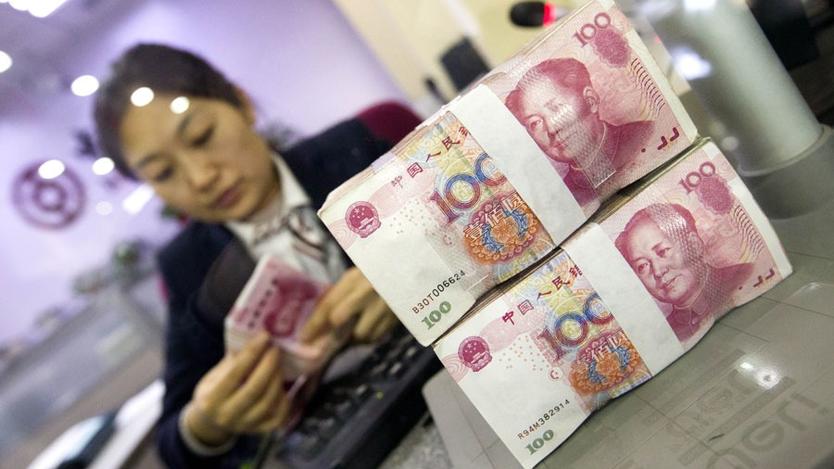 A cashier at a bank in Taiyuan, Shanxi province counts renminbi notes. (PHOTO / CHINA NEWS SERVICE)
A cashier at a bank in Taiyuan, Shanxi province counts renminbi notes. (PHOTO / CHINA NEWS SERVICE)
China will continue to ramp up the issuance of special-purpose local government bonds to help small and mid-size banks replenish capital as an important measure to enhance their risk resistance ability, said regulatory officials and industry experts.
It is estimated that the allocation of a combined quota of 320 billion yuan ($47.37 billion) of such bonds will be completed by the end of August, said an unidentified official with the China Banking and Insurance Regulatory Commission in a recent interview with China Banking and Insurance News, a Beijing-based daily.
The CBIRC will urge local governments to submit their plans for special-purpose local government bond issuances as soon as possible and speed up approval of such bonds so that they can play an active role in preventing risk, stabilizing the economy and promoting growth, the official said.
In the first half, the State Council, China's Cabinet, granted a combined quota of 103 billion yuan of special-purpose local government bonds to Liaoning, Gansu and Henan provinces and Dalian, Liaoning province, said Qi Xiang, a spokesman and head of the law and regulation department of the CBIRC, at a news conference on Thursday.
At the same time, the regulator will guide small and mid-size banks to replenish capital through market-oriented means and encourage such banks to introduce various types of capital that meet the criteria, including foreign capital, Qi said.
"Replenishing capital via special-purpose local government bond issuances has been an innovative way for China in recent years to step up capital replenishment of small and mid-size banks. It is conducive for such banks to expand their sources of capital, increase their capital strength and improve their steady development capacity," said Dong Ximiao, chief researcher at Merchants Union Consumer Finance Co Ltd.
For the next step, China should accelerate the establishment of a long-term capital replenishment mechanism for small and mid-size banks. For instance, regulators should optimize requirements for shareholders as appropriate, simplify approval procedures and support such banks to introduce qualified shareholders. Moreover, regulators should also relax restrictions on market access for small and mid-size banks, support them to issue preferred shares, perpetual bonds, convertible bonds and tier 2 capital bonds, and increase efforts to support more quality small and mid-size banks to have priority over others in going public, Dong said.
The issuance of special-purpose local government bonds is a way to help the minority of small and midsize banks in China that cannot achieve sustainable development by themselves or replenish capital via market-based approaches, said Zeng Gang, deputy director-general of the National Institution for Finance& Development.
"During the process of replenishing capital, small and mid-size banks must mitigate risks. This means capital increases are usually accompanied by reforms of such banks. Currently, China is mainly carrying out these kinds of reforms by mergers and acquisitions, which will lay a solid foundation for long-term sustainable development of small and mid-size banks in many regions," Zeng said.
For city commercial banks, rural credit unions and village banks that are fairly small in terms of total assets and have operational difficulties, it is a realistic option to promote institutional reforms and strengthen their risk resistance capacity by forming provincial-level city commercial banks and city-level rural commercial lenders through M&As, said Dong with Merchants Union Consumer Finance.
He advised local governments to introduce market-oriented mechanisms during the M&A process to make appropriate arrangements in areas including ownership structure, restructuring of financial institutions and senior management appointments.
In addition, China's top banking and insurance regulator continues to monitor risks of small and midsize banks and has been pushing harder for the handling of nonperforming assets. In the first half, such banks in China disposed of nonperforming loans totaling 594.5 billion yuan, 118.4 billion yuan higher than the amount during the same period of the previous year, said Qi.
jiangxueqing@chinadaily.com.cn


